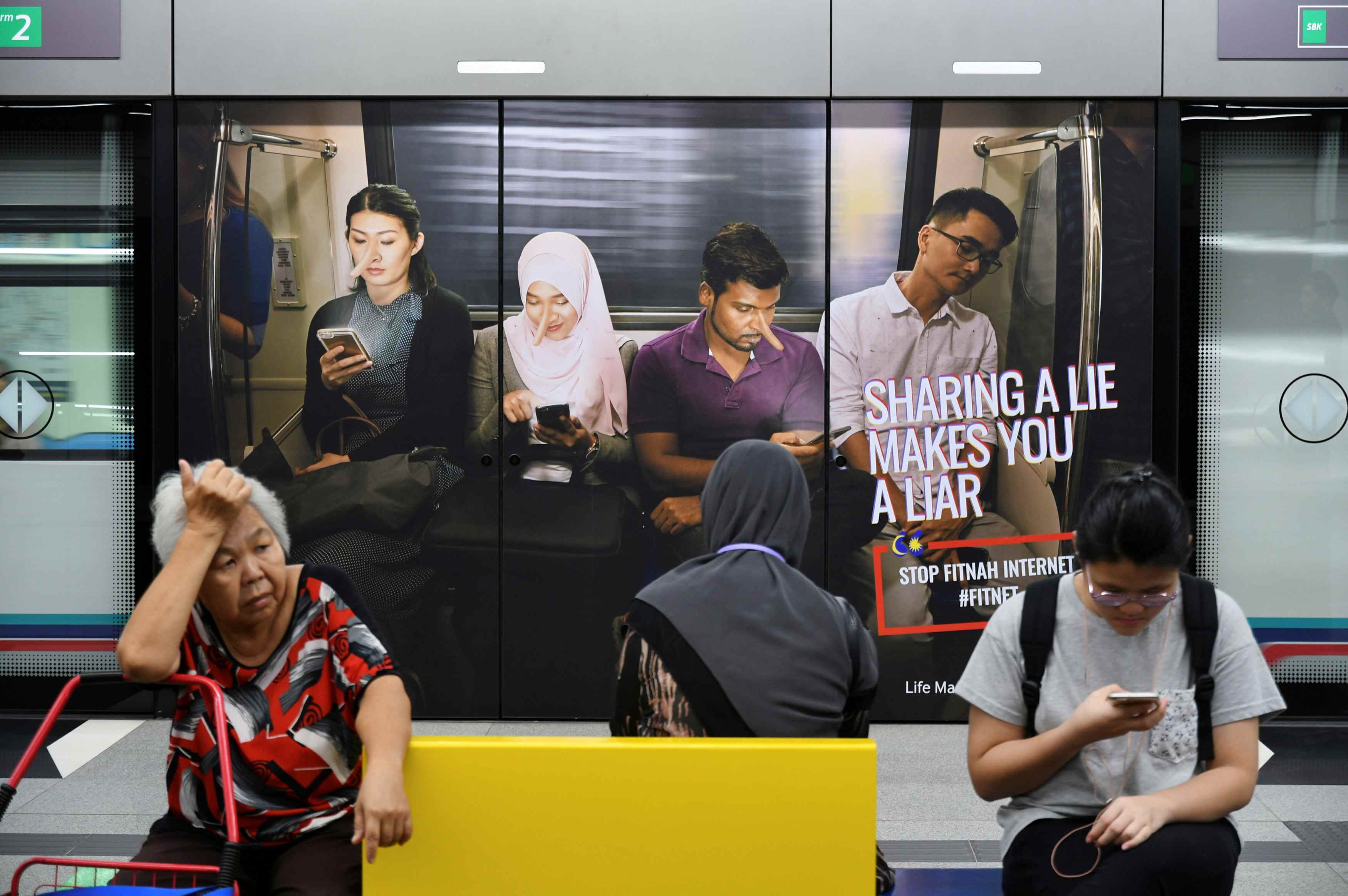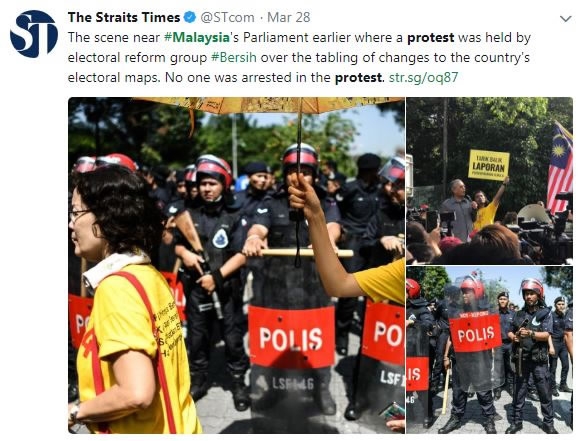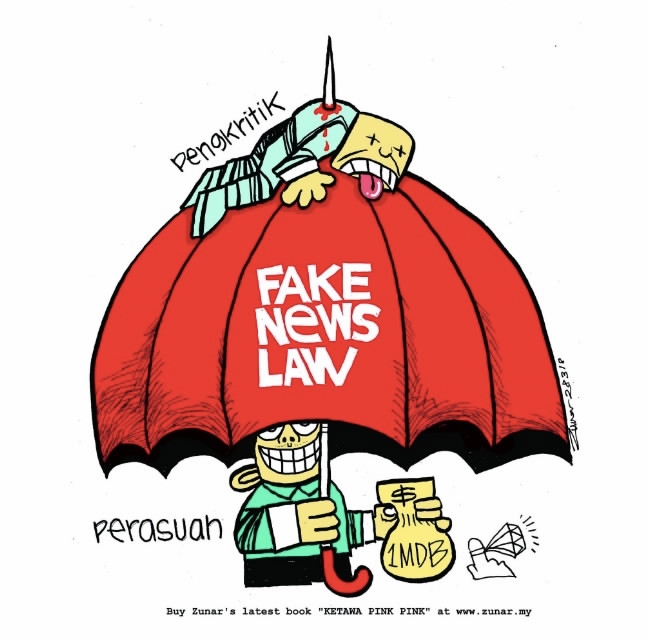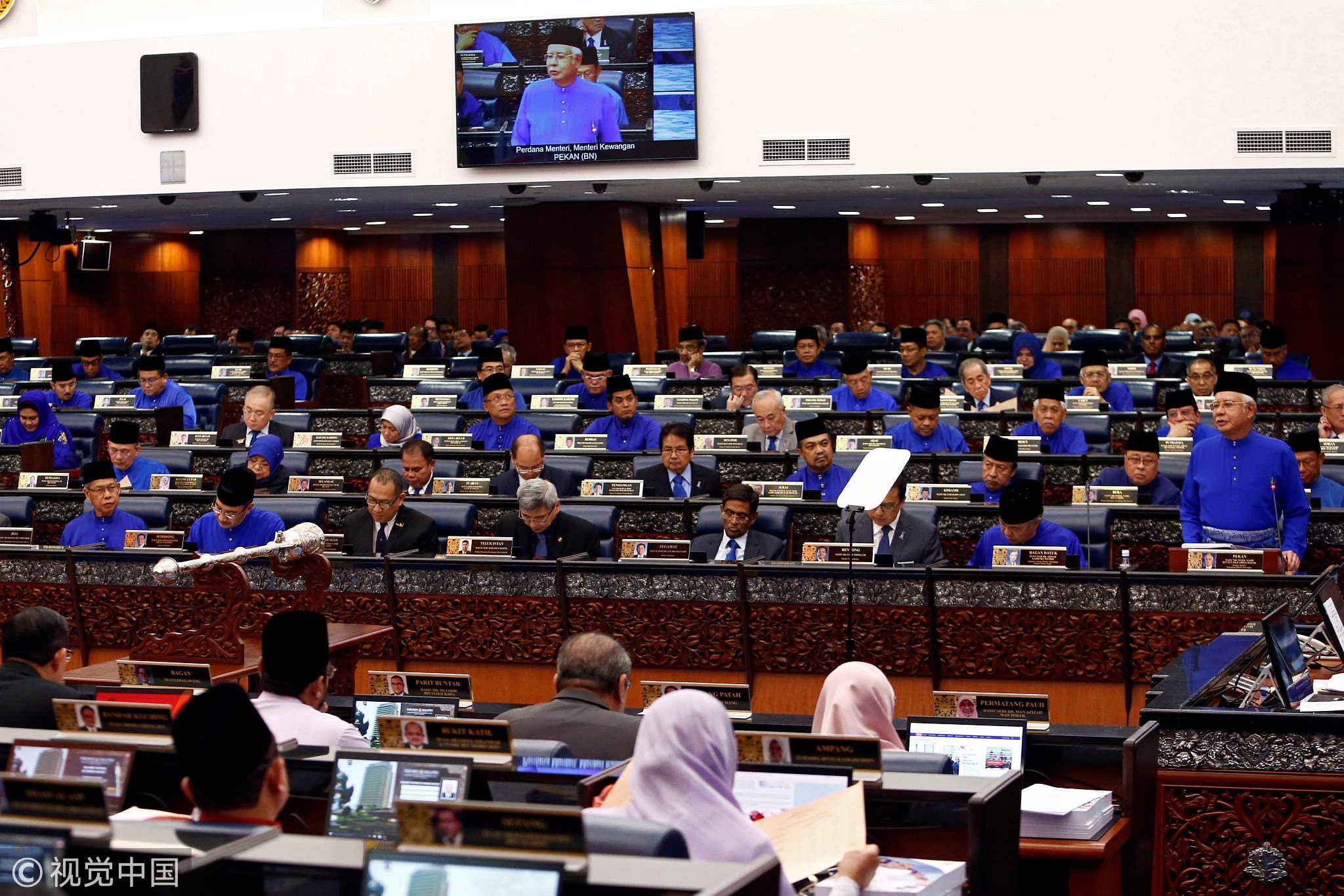
World
16:47, 30-Mar-2018
'Fake news' bill in Malaysia prompts public outcry
By Natasha Hussain

An Anti-Fake News Bill tabled by the Malaysian government has prompted an outcry from the public, human rights groups, journalists and opposition lawmakers, who insist it will create a chilling effect on media outlets and anyone else who posts anything online.
Tabled for a first reading in parliament on Monday, the bill could see anyone convicted of “maliciously” creating fake news slapped with a heavy fine or even sentenced to several years in prison.
De facto Law Minister Azalina Othman Said explained in a Facebook post on Thursday that it will act as a “deterrent to send a clear message to each individual to be responsible in sharing information that is true and right.” The bill doesn’t aim to restrict freedom of expression but rather, halt the spread of fake news, she insisted.
For Eric Paulsen however, co-founder and executive director of Malaysian NGO Lawyers For Liberty, the bill has a “massive chilling effect on freedom of speech and encourages self-censorship, especially from online media, dissidents and the opposition”.

Commuters sit in front of an advertisement discouraging the dissemination of
fake news, at a train station in Kuala Lumpur, Malaysia March 28, 2018. /Reuters Photo
Commuters sit in front of an advertisement discouraging the dissemination of fake news, at a train station in Kuala Lumpur, Malaysia March 28, 2018. /Reuters Photo
Fake news is defined in the bill as “news, information, data and reports which is or are wholly or partly false” including features, visuals and audio recordings. It covers digital publications and social media, and doesn’t only apply to Malaysian citizens and residents but also extends to offenders abroad.
The wording in the draft document is "extremely vague and does not define the severity of fake news required before attracting criminal culpability,” Paulsen said in a statement.
“Simply put, sharing a link on social media can now be a crime if the authorities determine it to be ‘fake news,’” he said.
Following the uproar, the government on Thursday made changes to the bill, reducing the maximum jail time for offenders to six years from the original 10.
Offenders could still have to pay a fine of up to 500,000 ringgit (US$128,000), but the wording has been changed to target people who “maliciously”, not just “knowingly,” create fake news.

Screenshot of Twitter.
Screenshot of Twitter.
These changes show the government is open and sincere in listening to views from all parties, Othman Said said Thursday.
The tabling of the bill comes ahead of a general election, expected to be called within weeks. Critics say the bill aims to silence dissent and also shut down discussions surrounding the multi-billion dollar 1MDB corruption scandal involving Prime Minister Najib Razak.
Fake news?
Famed Malaysian political cartoonist Zulkiflee Anwar Haque, better known as Zunar, told CGTN the Anti-Fake News Bill aims to create fear.
“The important question here is, who defines whether the news is fake or not? It is the authorities. So it is very easy to abuse this law to silence critics. By using their interpretation, the police can easily arrest and detain citizens, even before the matter is brought to the court of law.”

Cartoon by Zunar, @zunarkartunis
Cartoon by Zunar, @zunarkartunis
The 54-year-old Zunar, who was awarded the Cartooning for Peace Award in 2016, said Malaysia’s current laws are more than enough to tackle the issue of fake news. He has experienced them first hand: arrested in 2016, he still faces charges under Malaysia’s Sedition Act for his pointed caricatures.
“I’ve been under a travel ban since June 2016… The government has banned nine of my political cartoon books. I have been arrested and detained five times under various laws,” he said.
“The authorities also confiscated thousands of my books and artworks. My office in Kuala Lumpur has been raided several times. Printers printing my books and book stores around Malaysia trying to sell my books have also been constantly raided.”
Malaysia’s Bar Council has also argued it is unnecessary to introduce a law specifically targeting fake news, as “false news” and “false communication” are already criminalized under two separate acts.

Zulkiflee Anwar Ulhaque (Zunar) at his office in Kuala Lumpur on April 13, 2015. /VCG Photo
Zulkiflee Anwar Ulhaque (Zunar) at his office in Kuala Lumpur on April 13, 2015. /VCG Photo
But not all agree.
“The current Malaysian political scenario is full of planted news that’s mostly manipulated or faked in a way to greatly influence the general public's decision making process,” political analyst Azmi Hassan told CGTN.
“Current laws are not adequate to tackle this new sophisticated way of manipulation and therefore its high time Malaysia has its specific law to govern the fake news phenomena."
Ng Yeen Seen, CEO of the Centre for Research, Advisory and Technology, a Kuala Lumpur think tank, added the bill was going through the proper motions. “There will always be dissenting parties… if the anti-fake news law is implemented properly, the public will be the ultimate beneficiary,” she said to CGTN.
Redrawing the electoral map
Beyond concerns about free speech, there have been fears the law could be used against those accusing the government of gerrymandering or criticizing other aspects of the electoral process ahead of a general election that is due before August but widely expected to be held sooner.

Malaysia's Prime Minister Najib Razak speaks in parliament in Kuala Lumpur, Malaysia on October 27, 2017. /VCG Photo
Malaysia's Prime Minister Najib Razak speaks in parliament in Kuala Lumpur, Malaysia on October 27, 2017. /VCG Photo
Redrawn electoral boundaries were formally approved this week by parliament and the King, despite protests in Kuala Lumpur.
Under the nation’s constitution, a review of electoral boundaries is due every eight years and Hassan told CGTN the latest redrawing is in line with population growth.
“Since the last exercise in 2003, there’s been a 36-percent increase in the number of voters and constituencies that are situated in urban areas, which are changing very rapidly in terms of registered voters,” he explained.
Opposition politicians and activists however allege gerrymandering. More than a third of the 222 parliamentary seats are having their boundaries redrawn but while some pro-opposition constituencies have more than 100,000 voters, other pro-government ones are much smaller.
Debates on the Anti-Fake News Bill are due to resume on Monday, but with the government holding a comfortable majority in parliament, it is widely expected to pass into law next week.
4350km

SITEMAP
Copyright © 2018 CGTN. Beijing ICP prepared NO.16065310-3
Copyright © 2018 CGTN. Beijing ICP prepared NO.16065310-3